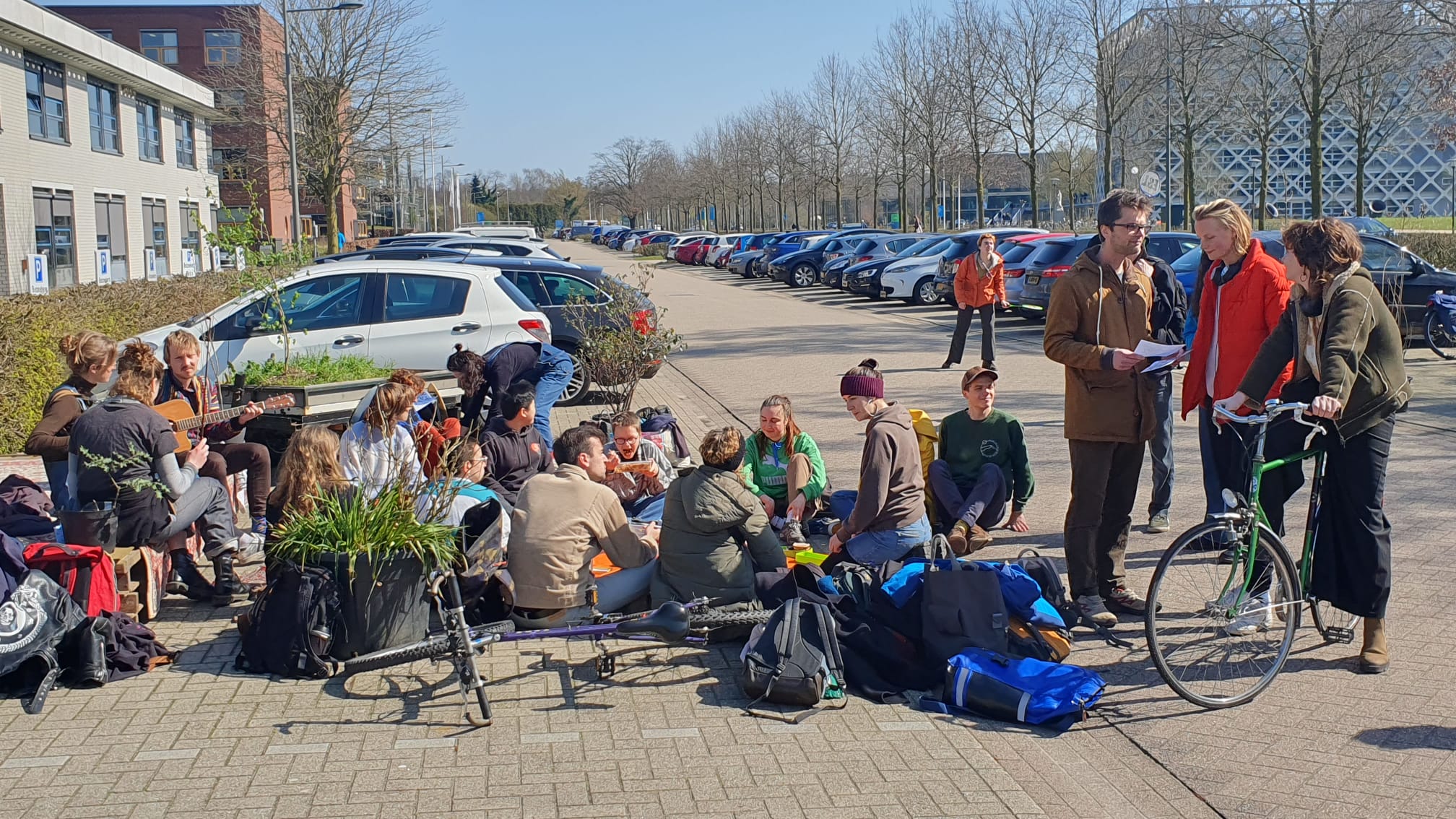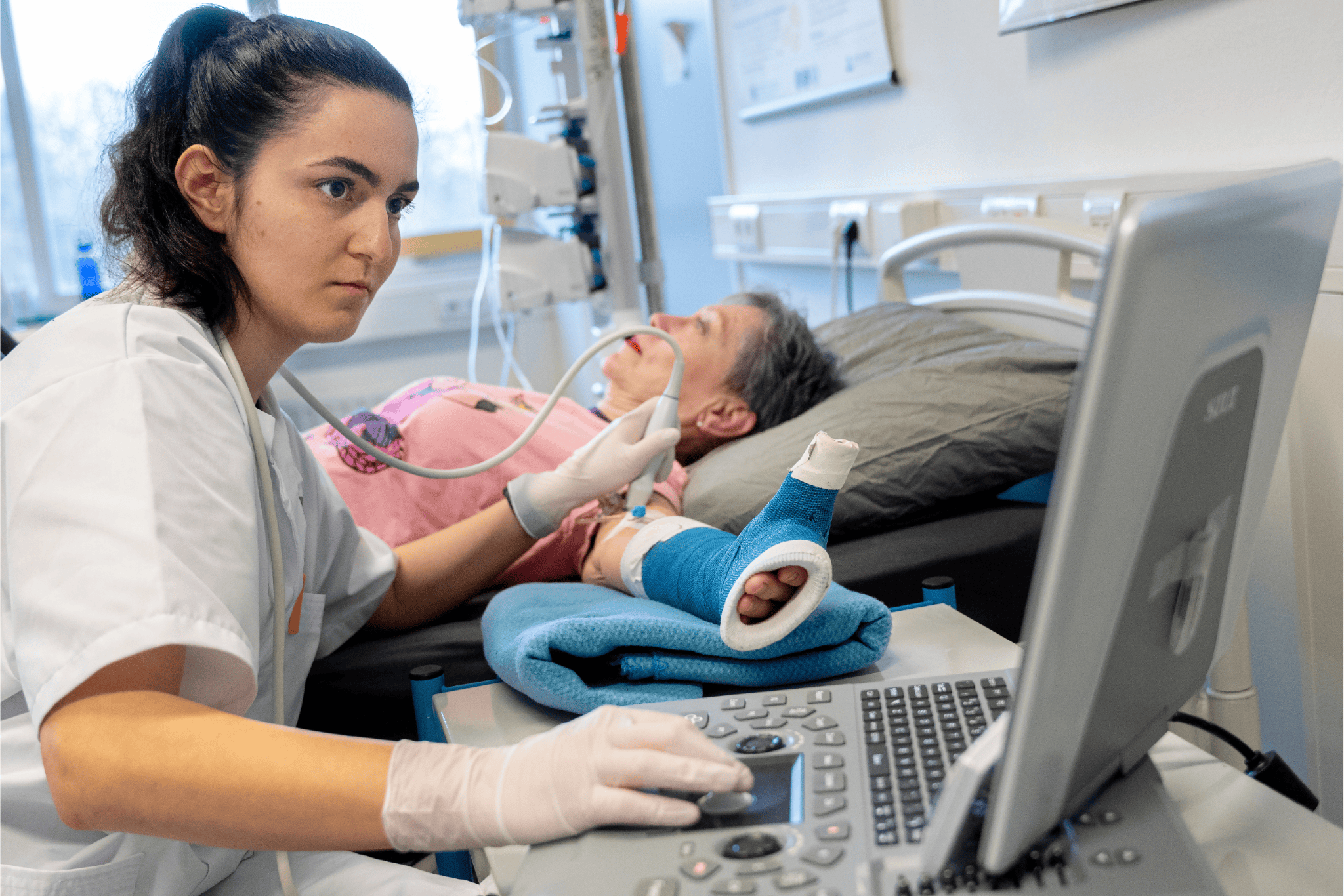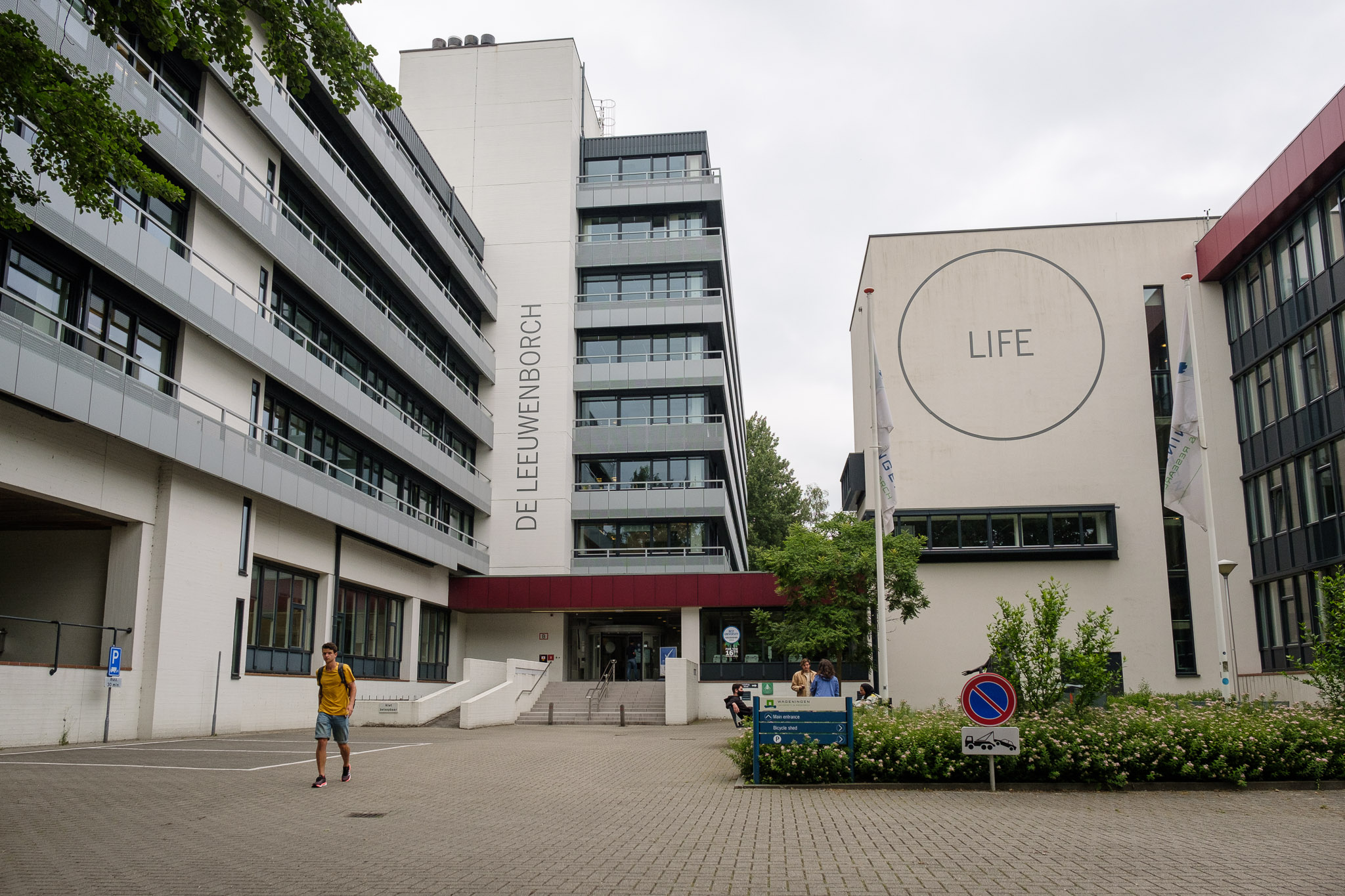The New Mobility Wageningen protest group used a small popup park on the Gaia/Lumen parking lot to draw attention to the dominance of cars on the campus. A petition was available calling for a change in the current situation.
The warm spring sun, cosy seating areas, people chilling, live music and vegetation. With a little imagination, the parking lot next to the entrance of Gaia and Lumen could pass for a park on Wednesday afternoon. The set-up was an initiative by the New Mobility Wageningen protest group, which aimed to reiterate that the campus is too focused on cars.
A matter of choice
Consider this: placing a popup park on the campus is prohibited. While parking your car there, is no issue at all. ‘We act like this is self-evident, but in reality, it is not’, says Eline Floor Houwen, a Climate Studies student. ‘It is all about what purposes are prioritised when using public space. Will WUR continue to give cars right-of-way as the province does in its Beter Bereikbaar Wageningen plan? Or will we use the available space on the campus to increase biodiversity and stimulate social interaction as is done today with people making music?’
Car dogma
Members of the protest group talked to various people involved in the mobility issue in Wageningen these past months, says Jacco Bontekoe, a student of Urban Environmental Management. Their conclusion is that, theoretically, WUR has good intentions. The mobility plan states that traffic to and from the campus is to be more sustainable and less car-oriented. In practice, however, the car dogma is too firmly rooted to really make different choices. ‘WUR is stuck in a thought pattern that is incompatible with the ideal of a sustainable future’, says Houwen. ‘Traffic jams invariably lead to the reflex that the amount of tarmac must be increased. At the same time, scientific studies have extensively shown that this is not a long-term solution. More tarmac leads to more traffic.’
Increasing the pressure
The protest group calls on employees, students and Wageningen residents to sign their petition to encourage WUR to make their mobility policy even more sustainable and to do so through ‘an open, fair and inclusive dialogue’. Bontekoe: ‘We are aware that WUR can not determine everything. The Beter Bereikbaar Wageningen plan is a provincial responsibility. However, the discussions we have had in the past few months show that WUR has a considerable say in the matter and is considered an important party. Hence, we will keep pushing.’ Not only through a petition but also through the popup park. ‘We may see it pop up on the campus from time to time on sunny Wednesdays’, Bontekoe hints.

 A popup park to show that the campus is too car-oriented.Photo Helene Seevinck
A popup park to show that the campus is too car-oriented.Photo Helene Seevinck 
![[Seriously?] The Gulf of WUR](https://www.resource-online.nl/app/uploads/2025/02/WEB_DeNeus.png)
